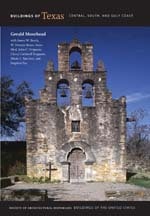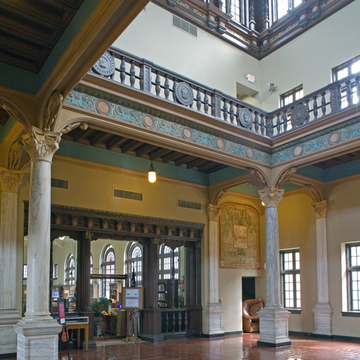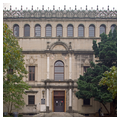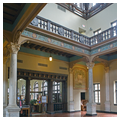You are here
Julia Ideson Building, Houston Public Library (Central Library)
Boston architect Ralph Adams Cram and his Houston associate Watkin designed the former Central Library, which faces Hermann Square, as an L-plan building, configured with thin wings and decorated with cast-stone Spanish Plateresque ornament. The academic composure, modulated scale, and historical refinement of the library have made it a popular favorite among Houston public buildings. In 1979 the building was restored by S. I. Morris Associates to house the Houston Metropolitan Research Center, the public library's archival collection and other special collections. The second-floor delivery hall and reading room were restored to their 1920s glory. Corridors and the main stairwell display murals by Houston artists painted in 1935 under the auspices of the Public Works of Art Project. Cram's original scheme was completed in 2010 by Gensler with the addition of a rear wing bordering Lamar Avenue, which had not been built in the 1920s. Adjoining the Ideson Building to the west, the Jesse H. Jones Library building by S. I. Morris Associates was constructed to replace the Ideson building as the central library.
Across Bagby Street from the Jones Library is Sam Houston Park, where the Harris County Heritage Society maintains an open-air architecture and history museum. It contains seven houses and one church moved here from other parts of Houston and Harris County. Still on its original site in what became the park is the Kellum-Noble House of 1847, the oldest surviving building in Houston.
Writing Credits
If SAH Archipedia has been useful to you, please consider supporting it.
SAH Archipedia tells the story of the United States through its buildings, landscapes, and cities. This freely available resource empowers the public with authoritative knowledge that deepens their understanding and appreciation of the built environment. But the Society of Architectural Historians, which created SAH Archipedia with University of Virginia Press, needs your support to maintain the high-caliber research, writing, photography, cartography, editing, design, and programming that make SAH Archipedia a trusted online resource available to all who value the history of place, heritage tourism, and learning.


















